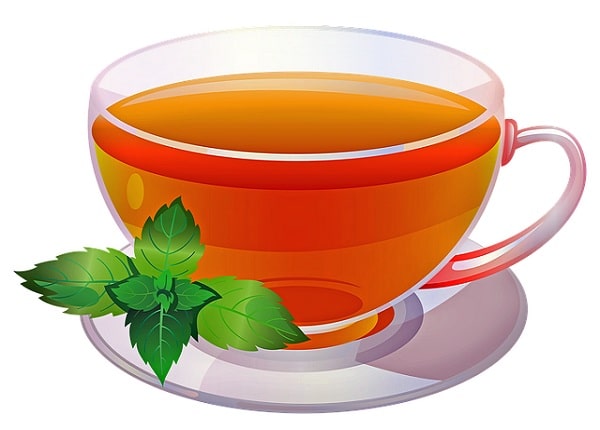Did you know that aside from water, tea is the most popular beverage in the world? About half of all Americans drink tea daily. That adds up to 2.2 billion gallons of tea each year!
Besides being warm and tasty, tea has been used for centuries as a medicinal drink. But will drinking several cups of tea a day really provide health benefits? Scientists have been “brewing” over this very question for decades.

Table of Contents
Types of tea
Caffeinated teas are often grouped into four main types: white, green, black and oolong. All four are produced from the leaves of a plant known as Camellia sinensis. Their flavor and properties vary depending on how the leaves are processed.
- Green tea leaves are withered, steamed and then dried, with minimal processing. White tea is simply steamed and dried and is made from young leaves that have not matured. Both tend to have a grassy flavor.
- Black and oolong tea is made from mature leaves that are dried, crushed and fermented. This gives it a slightly stronger, fuller taste.
- Herbal tea is not derived from the leaves of the Camellia plant. Most herbal teas in the market are not tea at all. They are simply infusions made with herbs, flowers, roots, spices or other parts of some plants.
The secret is in the leaves
Tea leaves contain several powerful antioxidants. These are compounds that protect cells against the damaging effects of aging and the environment. They are thought to contribute to the prevention of many chronic diseases.
Flavonoids, also known as polyphenols, are types of antioxidants found in tea. Flavonoids can also be found in many fruits, vegetables and other beverages like red wine and some fruit drinks.
Black and green teas have different types of flavonoids than fruits and vegetables. Green tea contains high amounts of the popular catechin flavonoid, known as EGCG. Researchers are also studying thearubigins now, a lesser known flavonoid in black tea.
Tea for two?
Although not ironclad, research is mounting that tea may be good for your health. Below is a summary of the findings:
- There’s some evidence that regularly drinking green tea may reduce heart attack risk or atherosclerosis. Further studies are needed to clarify this, and also to see whether it might have a positive long-term effect on cholesterol levels and high blood pressure.
- It’s still not known whether drinking black tea regularly can protect against cancer. Early lab tests with white tea show it may help to prevent colon cancer in particular, but more studies are needed. A large study from Japan in 2006 did not find that drinking green tea prevented cancer death. Some other smaller studies, though, suggest that drinking green tea over time reduces the severe effects of sun damage to the skin, but this hasn’t been proven.
- Research on rodents has shown that tea helped to improve glucose control with the antioxidant EGCG. Other findings have indicated that ECGC may slow the development of type 1 diabetes. But again, more research is needed to see if this is true in humans.
- Early research suggests that green tea may help to reduce inflammation and joint damage from rheumatoid arthritis. Other data indicate that regular tea drinking might improve bone mineral density in older women. More studies are needed.
- Limited studies have shown that green and black teas may help slow the course of Alzheimer’s disease, and may help improve mental alertness. Larger studies could help sort out whether either of these claims is true.
Drink to your health
- Excessive polyphenols from large amounts of tea may reduce the absorption of certain medicines and iron supplements. Always tell your doctor and pharmacists about any herbs and supplements you are taking.
- Experts vary on how much tea you should drink, but most recommend at least three cups a day to reap any benefits.
- Brew tea using 1 to 2 teaspoons of the dried tea in a cup of boiling water. Or steep a tea bag for 3 to 15 minutes.
- Do not drink tea if your doctor has restricted your caffeine intake. All types of tea, green, white, black and oolong, have caffeine. But it’s fine to drink decaf, which has nearly all the benefits of caffeinated tea.
- Stick with cups of tea, versus supplements. There’s no proof that supplements will provide the same potential benefits as drinking tea.
- Beware of bottled tea beverages that claim to help with weight loss. There is no evidence that tea can help burn calories. Also, instant iced tea has no health benefits.
More conclusive research is still needed, but there is no known downside to drinking tea in moderation. Enjoy this calorie-free, antioxidant-rich drink to your heart’s content. Just watch the sugar and whole milk, or don’t add them at all.




